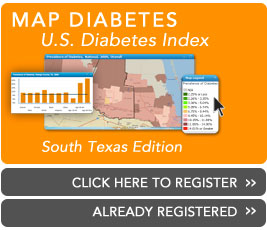Posted by Staff
News
Tuesday, September 18th, 2012
British Journal of Cancer Press Release: Friday 14 September 2012
The study, by researchers at the International Prevention Research Institute (i-PRI), Lyon, analysed the results of 40 separate studies examining the potential link between breast cancer and diabetes.
These studies involved over 56,000 cases of breast cancer across four continents and found that post-menopausal women with type II diabetes had a 27 per cent increased risk of breast cancer.
The increase in breast cancer risk seems to be restricted to post menopausal women with type II diabetes, as the research found no link between women of pre-menopausal age or those with type I diabetes.
The authors have also suggested that a high Body Mass Index (BMI), which is often associated with diabetes, may be an underlying contributing factor. Read more
Posted by Staff
News
Tuesday, September 18th, 2012
American Medical Association: September 12, 2012
Recent clinical trials have reported that substantially more weight loss and greater likelihood of diabetes remission occur following bariatric surgery compared with medical therapy,1 leading to calls for earlier consideration of surgery in the treatment of this obesity-related metabolic disease. Although these studies demonstrate the lack of efficacy of conventional practices, they do not prove the inherent superiority of surgery to lifestyle change. This Viewpoint considers the limitations of published research and highlights the need for clinical trials with improved design. read more
Posted by Staff
News
Tuesday, September 18th, 2012
American College of Cardiology Foundation: September 2012
The purpose of this study was to assess whether changes of major atrial fibrillation (AF) risk factors and/or intercurrent cardiovascular events could explain the relationship between type 2 diabetes mellitus (T2D) and incident AF.
Background Previous studies found an increased risk of incident AF among individuals with T2D, but few, if any, of these studies took into account changes of AF risk factors over time.
Methods A total of 34,720 female health professionals who participated in the Women’s Health Study, and who were free of cardiovascular disease and AF at baseline were followed for a median of 16.4 years. Cox proportional-hazards models were constructed to assess the relationship between T2D and incident AF, using either information at baseline or time-varying covariates for both T2D and potential confounders. Read more
Posted by Staff
Minority Diabetes Reports
Tuesday, September 18th, 2012
Centers for Disease Control and Prevention: September 17th, 2012.
In September 1968, Congress authorized President Lyndon B. Johnson to proclaim National Hispanic Heritage Week. The observance was expanded in 1988 to a month long celebration (Sept. 15 – Oct. 15). We celebrate the culture and traditions of U.S. residents who trace their roots to Spain, Mexico, and the Spanish-speaking nations of Central America, South America and the Caribbean.
September 15th was chosen as the starting point for the celebration because it is the anniversary of independence of five Latin American countries: Costa Rica, El Salvador, Guatemala, Honduras and Nicaragua. In addition, Mexico and Chile celebrate their independence days on September 16th and 18th, respectively. Read more
Posted by Staff
Minority Diabetes Reports
Tuesday, September 18th, 2012
By Ankita Rao
SEPTEMBER 13TH, 2012, 10:16 AM
Mayra Alvarez, one of four daughters, said her mother makes ends meet in California by cleaning houses during the week and caring for an elderly person on weekends. And when it comes to deciding between paying for a preventive screening test for herself or spending the money on her youngest daughter’s education, she said her mother would always choose the latter.
“And I have to say, most American families would,” said Alvarez, the director of public health policy in the Office of Health Reform at the U.S. Department of Health and Human Services.
During a panel discussion Wednesday, she joined Rep. Lucille Roybal-Allard, D-Calif., and other health care experts to speak about “Diabetes and Obesity In The Latino Community, Reversing The Trend” as part of the Congressional Hispanic Caucus Institute’s public policy conference in Washington, D.C. They said that public health officials need to take into consideration family and community dynamics as they tackle broad health care issues. Read more
Posted by Staff
Minority Diabetes Reports
Tuesday, September 18th, 2012
Biomedcentral.com: September 11, 2012.
Hispanics are the fasting growing population in the U.S. and disproportionately suffer from chronic diseases such as hypertension and diabetes. Little is known about the complex interplay between acculturation and chronic disease prevalence in the growing and increasingly diverse Hispanic population. We explored the association between diabetes and hypertension prevalence among distinct U.S. Hispanic subgroups by country of origin and by degree of acculturation.
Methods
We examined the adult participants in the 2001, 2003, 2005, and 2007 California Health Interview Survey (CHIS). Using weighted logistic regression stratified by nativity, we measured the association between country of origin and self-reported hypertension and diabetes adjusting for participants’ demographics, insurance status, socio-economic status and degree of acculturation measured by citizenship, English language proficiency and the number of years of residence in the U.S. Read more
Posted by Staff
Minority Diabetes Reports
Tuesday, September 18th, 2012
The Southall and Brent Revisited (SABRE) cohort
American Diabetes Association: September 10, 2012
o determine the extent of, and reasons for, ethnic differences in type 2 diabetes incidence in the U.K.
RESEARCH DESIGN AND METHODS Population-based triethnic cohort. Participants were without diabetes, aged 40–69 at baseline (1989–1991), and followed-up for 20 years. Baseline measurements included fasting and postglucose bloods, anthropometry, and lifestyle questionnaire. Incident diabetes was identified from medical records and participant recall. Ethnic differences in diabetes incidence were examined using competing risks regression.
RESULTS Incident diabetes was identified in 196 of 1,356 Europeans (14%), 282 of 842 Indian Asians (33%), and 100 of 335 African Caribbeans (30%). All Indian Asians and African Caribbeans were first-generation migrants. Read more



























